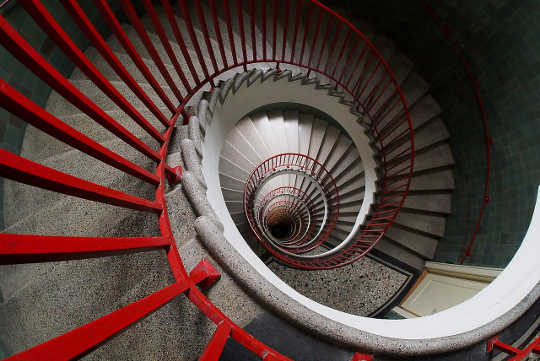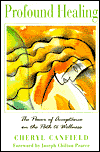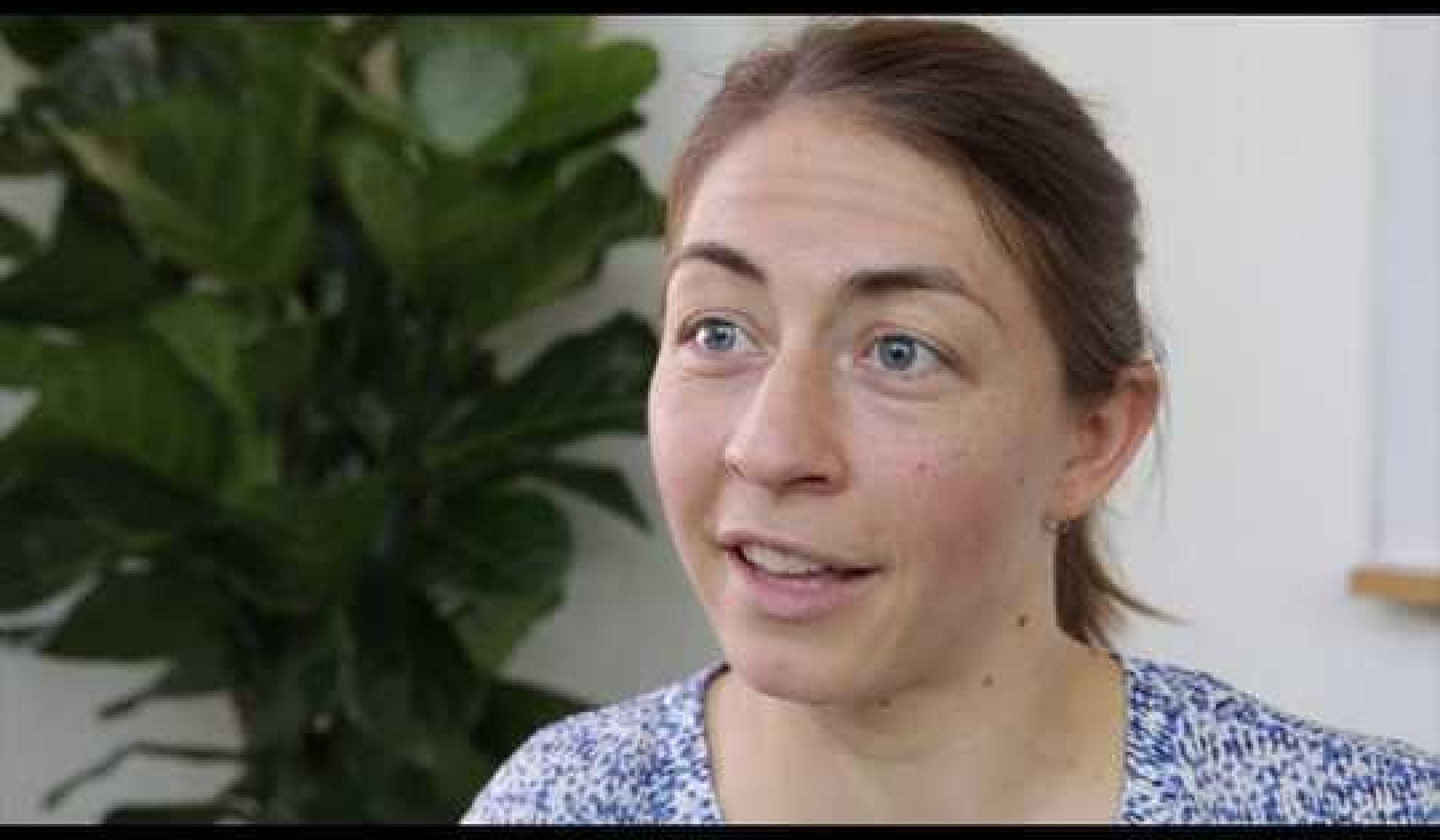
By Petar Miloševi? - Own work, CC BY-SA 4.0.
Paying attention to how we spend our energy can provide major clues in the process of healing. Certain emotions, such as blame, guilt, anger, or fear, that we return to again and again, can literally drain our life force and leave little or nothing to fuel the immune system.
Unlike the burst of fear or adrenaline that temporarily fires us up to respond quickly in an emergency situation -- a kind of energy that is easily replenished -- the ongoing burdens of guilt and blame over "what was" or fear of "what may be" is draining. Holding on to negative feelings is simply an exhausting expenditure of energy that can lead to emotional and physical bankruptcy.
When we hold bitterness or anger or fear toward another, we hurt ourselves, not the object of our focus. We drain our own energy, and this affects us on all levels. Further, through our bitter focus we grow our adversary into the proportions of a giant or a monster. When we let go of damaging negative emotions and the stories that feed them, our adversaries tend to shrink. In time, they may even disappear altogether.
Keeping Old Traumas Buried Drains Vitality
Unconscious or submerged issues can also drain our vitality. It takes a lot of psychic energy to keep old traumas from our conscious awareness; expenditures of this kind are equally exhausting and depleting. But if we aren't aware of these buried problems, how do we know if we have them? Although they may be difficult to get in touch with, certain clues may point to their existence. These include ongoing mild depression or a sense that we're blocking ourselves or that we sabotage ourselves from meeting certain goals. Journaling or counseling can begin to bring the issues that we haven't been ready to deal with to the surface.
One man who came to see me, Bill, had prostate cancer that had metastasized to his bones. He had been struggling with this condition for five years, using both conventional and alternative medicine. When I first saw him, he had decided that the time had come to focus on the spiritual side of his life. I told him that the spiritual path was not an easy path. It takes courage to know ourselves honestly and hard work to make whatever changes may be necessary.
He was eager to begin and took copious notes as we spoke. Between our next few meetings, Bill made trips to various treatment clinics where he did everything possible to get his cancer under control. His attitude was optimistic most of the time; he was learning to use meditation and relaxation, however sporadically, to pull himself out of occasional depressions. But I sensed that he wasn't really getting in touch with his emotions. He gently brushed off any difficulties in his personal relationships and seemed disconnected from his wife and young children.
Grief and Guilt Intertwined = Energy Drain
After several meetings he brought up the fact that he had never dealt with or grieved the death of his parents. They had been dead now for ten years. The pain was obvious in Bill's face as he went back to the particularly painful death of his mother only months after his father was killed in an accident. His emotions spilled out in cathartic release as he told the story.
As I guided him into a dialogue between his mother and himself, it came out that he felt a tremendous amount of responsibility toward her, and guilt that he had somehow failed her. Periodically during the dialogue I would ask him to imagine switching to the objective perspective of his higher self. From there, Bill talked about various misconceptions he had developed about the demands and responsibilities he had heaped on himself.
Through the dialogue his mother also expressed disappointments about some of his choices in life. As they went on, they began to come to the understanding that as a young man he had needed to make his own choices and to do what was right for him. As the dialogue came to a conclusion, she gave Bill her blessings and acceptance.
I asked him if there was anything else he would like to say to his mother. "Mom, I can't come and be with you now. I have to stay here and take care of my family." She replied, "Yes, son, you need to be there for them just as I was there for you. I love you and I will always love you and I'm here for you whenever you need me." For the first time since her death, Bill felt free of the guilt that had been pulling him out of the present and draining his life energy.
Changing the Pattern of Negative Energy Expenditures
This awareness of the life force as energy is key to the vision of profound healing. If we don't change the pattern of negative expenditures of energy, we'll continue to come up with a deficit that manifests again and again in the same symptoms or new ones. To really heal we need to open up to the transforming power of compassion and forgiveness, both toward ourselves and others. This power connects us to that universal source, through which our energy is ever replenished. Then we can transcend the temporary cessation of symptoms that is sometimes taken for healing.
In a study designed to measure immune responses, a group of people were asked to spend twenty minutes a day for one week writing about the most traumatic event in their lives. Comparing the results against a control group, researchers found that those who wrote about their trauma had much stronger immune responses. It's healthy to pull up the traumas from our past, sometimes stored unconsciously, and release them.
As we heal and release the past, we are released from the charge we have given to certain events. They lose their power over us, and we can better learn the lessons inherent in them. When we have a healthy relationship with and understanding of the past, we can visit it without getting stuck there or falling back into the position of a victim.
Reprinted with permission of Healing Arts Press,
a division of Inner Traditions International.
©2004. www.InnerTraditions.com
Article Source
Profound Healing: The Power of Acceptance on the Path to Wellness
by Cheryl Canfield. Relevant to anyone seeking personal growth and life wisdom, Profound Healing is not merely about dying or living. It is about discovering one's life and living it fully while here. Profound Healing is Cheryl Canfield's down-to-earth account of her journey as she inadvertently experiences a modern-day miracle, and her subsequent reflections on physical, emotional, mental, and spiritual healing. More than a biography, her story contains exercises, dreams, visualizations, and experiences--from encounters with the modern mystic Peace Pilgrim to her own acceptance of cancer--that assisted her healing process. Others can use her hard-earned insights as a source of hope, inspiration, and practical advice.
Relevant to anyone seeking personal growth and life wisdom, Profound Healing is not merely about dying or living. It is about discovering one's life and living it fully while here. Profound Healing is Cheryl Canfield's down-to-earth account of her journey as she inadvertently experiences a modern-day miracle, and her subsequent reflections on physical, emotional, mental, and spiritual healing. More than a biography, her story contains exercises, dreams, visualizations, and experiences--from encounters with the modern mystic Peace Pilgrim to her own acceptance of cancer--that assisted her healing process. Others can use her hard-earned insights as a source of hope, inspiration, and practical advice.
Info/Order this book. Also available as a Kindle edition.
More books by Cheryl Canfield.
About the Author
CHERYL CANFIELD is a wellness counselor who lectures nationally on topics of profound healing and steps toward inner peace. She is the editor of the book, Peace Pilgrim's Wisdom and co-compiler of Peace Pilgrim: Her Life and Work in Her Own Words. Visit Cheryl's website at www.ProfoundHealing.com



























